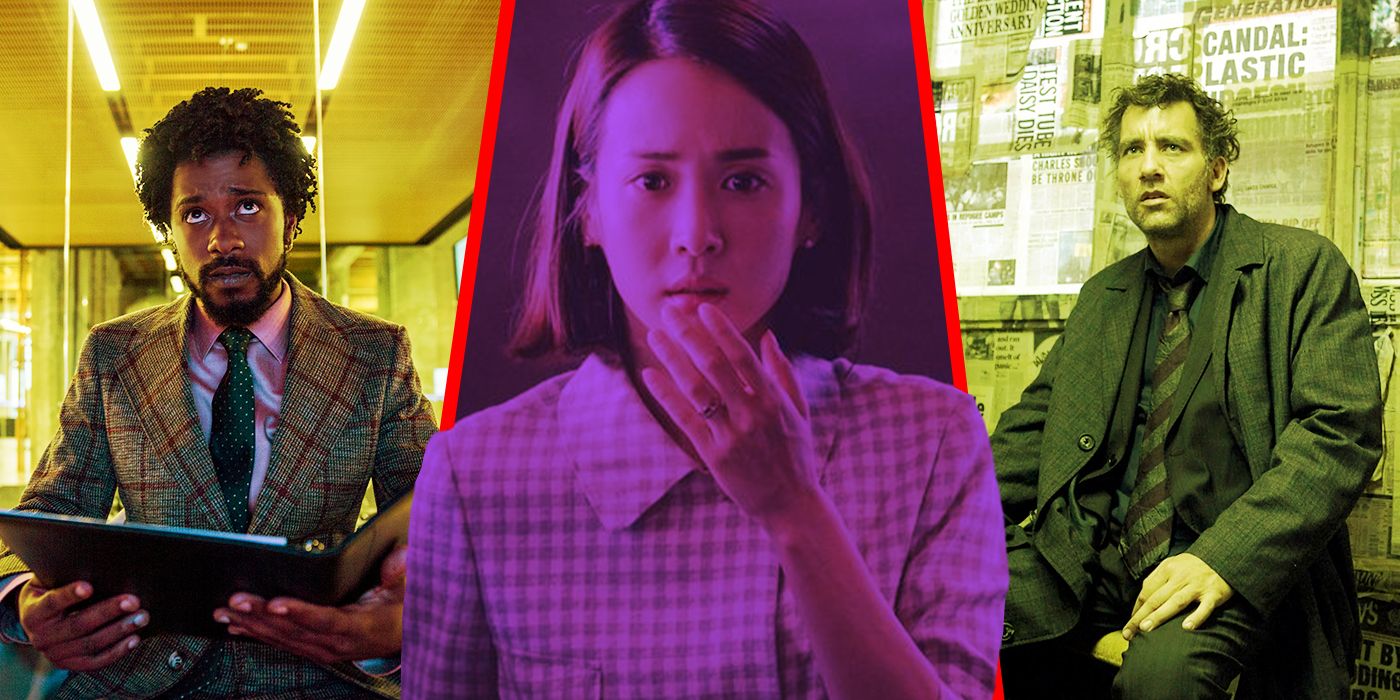Summary
- Sam McAlister’s struggle to secure the Prince Andrew interview forms the new film,
Scoop
, about the
Newsnight
interview which discussed his relationship with Jeffrey Epstein. - Class divisions and good performances add depth to an otherwise pointless film.
-
Scoop
is much too self-congratulatory and ultimately a depressing reminder that predatory systems of power can’t be dismantled so easily.
Netflix’s Scoop is a dramatic retelling of the infamous 2019 Newsnight interview with Prince Andrew regarding his relationship with convicted sex offender Jeffrey Epstein and his girlfriend, Ghislaine Maxwell. It’s a story that was told more meticulously in the strong British miniseries, A Very Royal Scandal, though Scoop distinguishes itself by largely focusing on the producer Sam McAlister (played by Billie Piper of Doctor Who), who negotiated and secured the interview.
McAlister wrote the book Scoops: Behind the Scenes of the BBC’s Most Shocking Interviews, which the film is based on, and while it’s a unique angle to see what goes into PR negotiations to get big talent, it’s simply not interesting enough for a feature film. Scoop is essentially one hour of McAlister working to get the Prince Andrew interview and half an hour of the interview itself, replicated by a fascinating Rufus Sewell as the Duke of York and the always excellent Gillian Anderson as Newsnight host Emily Maitlis.
Unfortunately, simply watching the real Newsnight special is more engaging than the dramatization in Scoop, though the performances are very well-calibrated.
The Prince and the Pauper: Scoop Gets Class Divisions Correct
Scoop (2024)
- Release Date
- April 5, 2024
- Director
- Philip Martin
- Runtime
- 102 Minutes
- Writers
- Geoff Bussetil , Peter Moffat
- Studio
- The Lighthouse, Voltage TV
- Fine performances from everyone involved.
- The focus on class disparity is interesting and appreciated.
- The film feels pointless and melodramatic.
- It’s all too self-congratulatory, and the subject is not as interesting as the film thinks it is.
Scoop begins with McAlister doing her best to get big interview guests. She’s obviously looked down upon by her colleagues as more of a TMZ or The Sun type of journalist, rather than the more posh and respectable BBC employees. Ironically, this is the most interesting aspect of the film, exploring the class disparity between McAlister (a single mother and the first woman in her working-class family to attend university) and the fancy BBC surroundings.

The 10 Best Movies About Class Consciousness
Cinema has been a medium for many sociopolitical ideas, and films that promote class consciousness and attack inequality are the best.
Piper is very good here, mostly ostracized from other actors aside from Keeley Hawes, playing Andrew’s private secretary, Amanda Thirsk. Thirsk is an interesting character, someone who seems to really believe Andrew and care about his well-being. She’s a fitting maternal figure for a man who arranges stuffed animals on his bed and waits for “mummy’s” approval. The discussions between McAlister and Thirsk are probably the best parts of Peter Moffat’s script, showing two women with completely disparate socioeconomic existences coming together to negotiate something that could be beneficial to each of them. In the end, McAlister wins.
Scoop Is Superfluous
The other performances in Scoop are equally serviceable, with Gillian Anderson and Rufus Sewell doing the heavy lifting of emulating an internationally known interview. They get the quirks and tics of these real people, and use their bodies and voices to truly become them. But to what end? If you’ve seen the real Newsnight interview, then you’ve seen this before. Does swapping out the real people with famous actors make it somehow better?
This gets to the heart of the film’s problem. Scoop is sadly just superfluous. A Very Royal Scandal covered all of this with much more detail, and as if to compensate for that fact, Philip Martin directs Scoop like a thriller, hoping to generate suspense where there absolutely is none. He films it like his work on Wallander or Agatha Christie’s Poirot, creating an almost laughable incongruity between form and content.
And let’s face it — the interview itself is honestly much less significant than the filmmakers seem to think it is here. Scoop is much too self-congratulatory, with characters literally applauding each other and talking about standing up to power. The BBC is power, though. It’s an arm of the state.
The Newsnight Interview Changed Nothing, and the Predators Are Still in Charge
And consider the lack of real consequences. What did the interview actually accomplish? Andrew was stripped of his royal titles? That may mean something to staunch defenders of the monarchy, but to most people, that’s fairly blasé. He paid millions of pounds to his accuser to avoid any liability, just as $550 million has been paid out to the victims of Epstein and Maxwell so far, with rich and powerful men avoiding any accountability whatsoever. Newsnight didn’t do much of anything except create some memes.

10 Addictive Documentaries About the Sordid Lives of Rich People
When documentaries center around the underbelly of the upper class, audiences glean more truths than they may have expected.
All of Jeffrey Epstein’s secrets are in the grave with him, and the structural powers-that-be will not let people like Bill Clinton, Donald Trump, or Alan Dershowitz ever face accountability for their alleged involvement with ‘the Lolita Express’ and a vicious sex trafficking ring. If anything, Scoop is a depressing reminder that even a massively popular television takedown of a wealthy monarch makes no difference whatsoever to the systems of power and predation that are in place and deeply protected. The characters can applaud each other all they’d like — like this film, they’ve done nothing.
Scoop is a production of The Lighthouse Film & Television and Voltage TV, and is now on Netflix. You can watch it through the link below:
Watch Scoop



